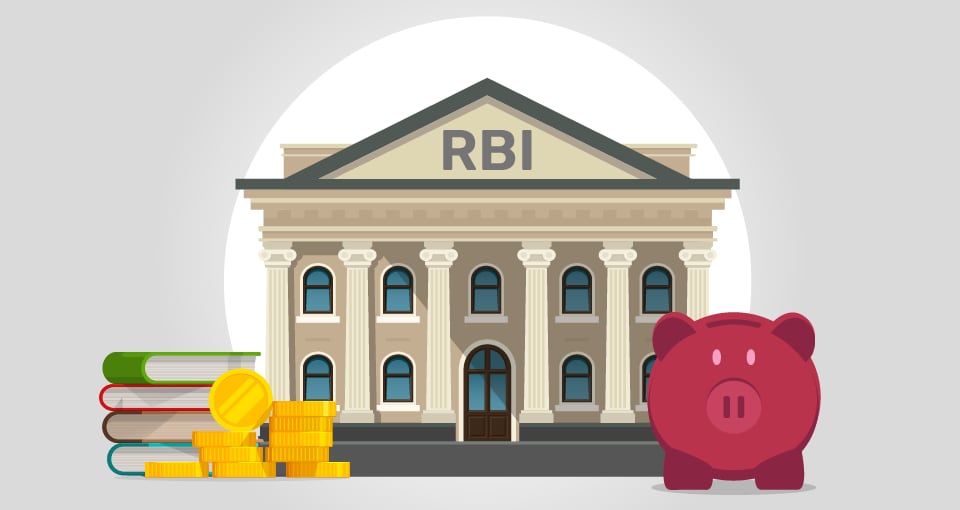Depositor Education and Awareness Fund: All You Need To Know

The Banking Regulation Act of 1949 was amended to empower the Reserve Bank of India (RBI) to establish The Depositor Education and Awareness Fund (DEAF) Scheme. The RBI has now mandated banks to identify accounts with no customer-initiated transactions for a period exceeding ten years.
Under this regulation, banks are obligated to transfer the credit balance in such dormant accounts to the Depositors Education and Awareness Fund, which is maintained with the RBI. However, depositors can still claim their funds or reactivate their accounts after ten years have passed.
Standard Procedure for Unclaimed Accounts
To facilitate transparency, banks are required to display details of unclaimed accounts on their official websites. Individuals can conveniently check for such information online and visit their bank branch to initiate a claim with the necessary know-your-customer (KYC) documentation.
Typically, a claim under the DEAF scheme is processed within seven working days, ensuring a relatively swift resolution. Following the payout by the bank, they are entitled to seek reimbursement from the DEAF scheme at the end of the month.
Origin of RBI's DEAF Scheme (2014)
The DEAF scheme made its official debut through a notification in the Official Gazette on May 24, 2014. In response, the RBI issued directives to bank heads, instructing them to calculate cumulative balances in accounts with unclaimed deposits and transfer these funds to the newly established fund. Formerly, the idea behind the DEAF scheme was introduced in the RBI's yearly monetary policy in May 2013, with the core aim of utilizing unclaimed deposits to educate and raise awareness among depositors.
Purpose of DEA Funds in India
The DEAF fund serves the essential purpose of promoting depositors' interests and supporting activities as specified by the RBI. These activities encompass depositors' education programs, seminars, research initiatives, and more. Importantly, despite the transfer of unclaimed funds to the Fund, depositors retain the right to claim their money from the bank after ten years. The bank, in turn, is entitled to seek reimbursement from the Fund.
Recent Developments to the RBI's DEA Fund 2023
Owing to various measures taken to return unclaimed deposits to their rightful owners or claimants over the last five years, a total of ₹5,729 Crores has been transferred from the DEA Fund to banks. Bhagwat Karad, Minister of State for Finance of India, announced this in the Lok Sabha on July 24, 2023. On August 8, 2023, the Minister further informed that banks have transferred unclaimed deposits totaling ₹48,461.44 Crores from 16,79,32,112 accounts to the DEA Fund, as of March 31, 2023.
On June 1, 2023, the Reserve Bank of India (RBI) introduced the '100 Days 100 Pays' campaign, with the aim of identifying and settling the top 100 unclaimed deposits in every bank in every district within 100 days. This campaign by the banking regulator is part of efforts to reduce the number of unclaimed deposits in the banking system and ensure that these deposits are returned to their rightful owners or claimants.
Entities Eligible to Register for the DEA Fund
Institutions, organizations, and associations engaged in the abovementioned relevant activities can seek assistance from this fund if they are one of the following –
A public charitable trust;
Registered under the Societies Registration Act, 1860, or equivalent laws;
Registered under State Co-operative Societies Acts;
Registered under section 25 of the Companies Act, 1956, or Section 8 of the Companies Act, 2013;
A lawfully established University;
An educational institution recognized by the Government, or affiliated with such a university;
An institution partly or wholly financed by the Government or a local authority;
Provision for Reimbursement of DEA Funds
Nominees or legal heirs of deceased depositors can make claims on their behalf by checking the government's website for a list of unclaimed deposits and following these steps –
- Verify information on unclaimed funds/inactive accounts on the relevant bank's website.
- Collect the Unclaimed Deposits Claim Form from a bank branch and fill it out.
- Provide KYC data as evidence of this account and claimed amount.
- Upon claim verification, banks transfer the claim to the depositor and apply to the RBI for reimbursement of the claimed amount.
- Any interest on a claim accrues from the date the funds were transferred to the DEAF until the customer is paid. This is limited to accounts with interest paid by the bank at a rate set by the RBI.
- If only part of the amount is claimed, the account is reactivated, and the entire sum, including interest, is returned to the now-active account.
Remember, awareness and alertness are key. Note down all the information about your existing accounts to ensure that your money doesn’t find its way into the DEAF later! Even if you are planning to open a Fixed Deposit online with a long tenure, make sure to keep clear records of your account. Today, opening and maintaining an FD is easy as pie. Head over to Bajaj Markets to book one today! Keep your future savings safe and secure as you earn long-term returns.
